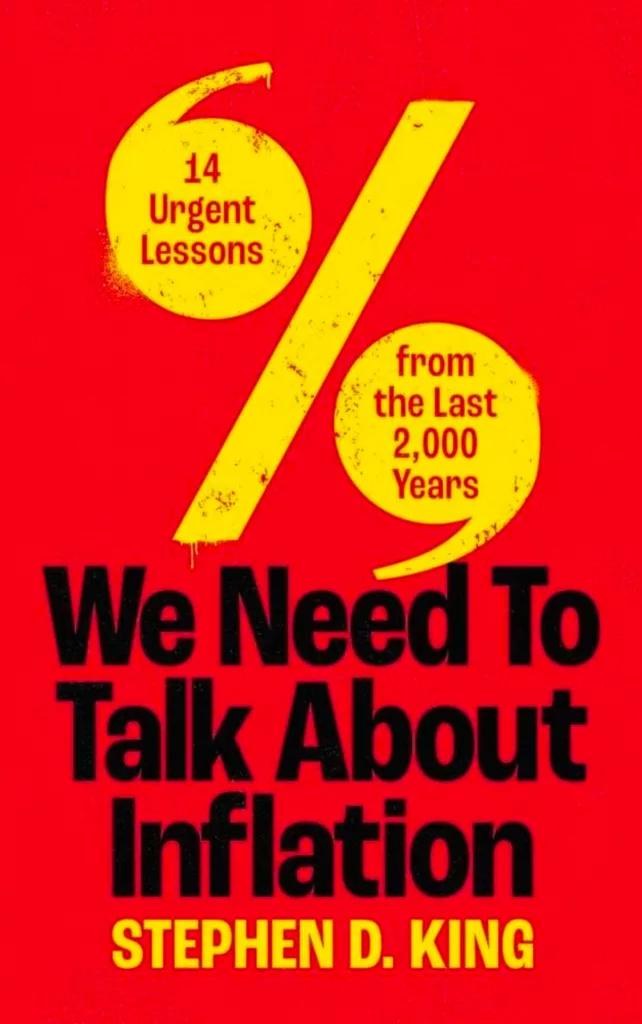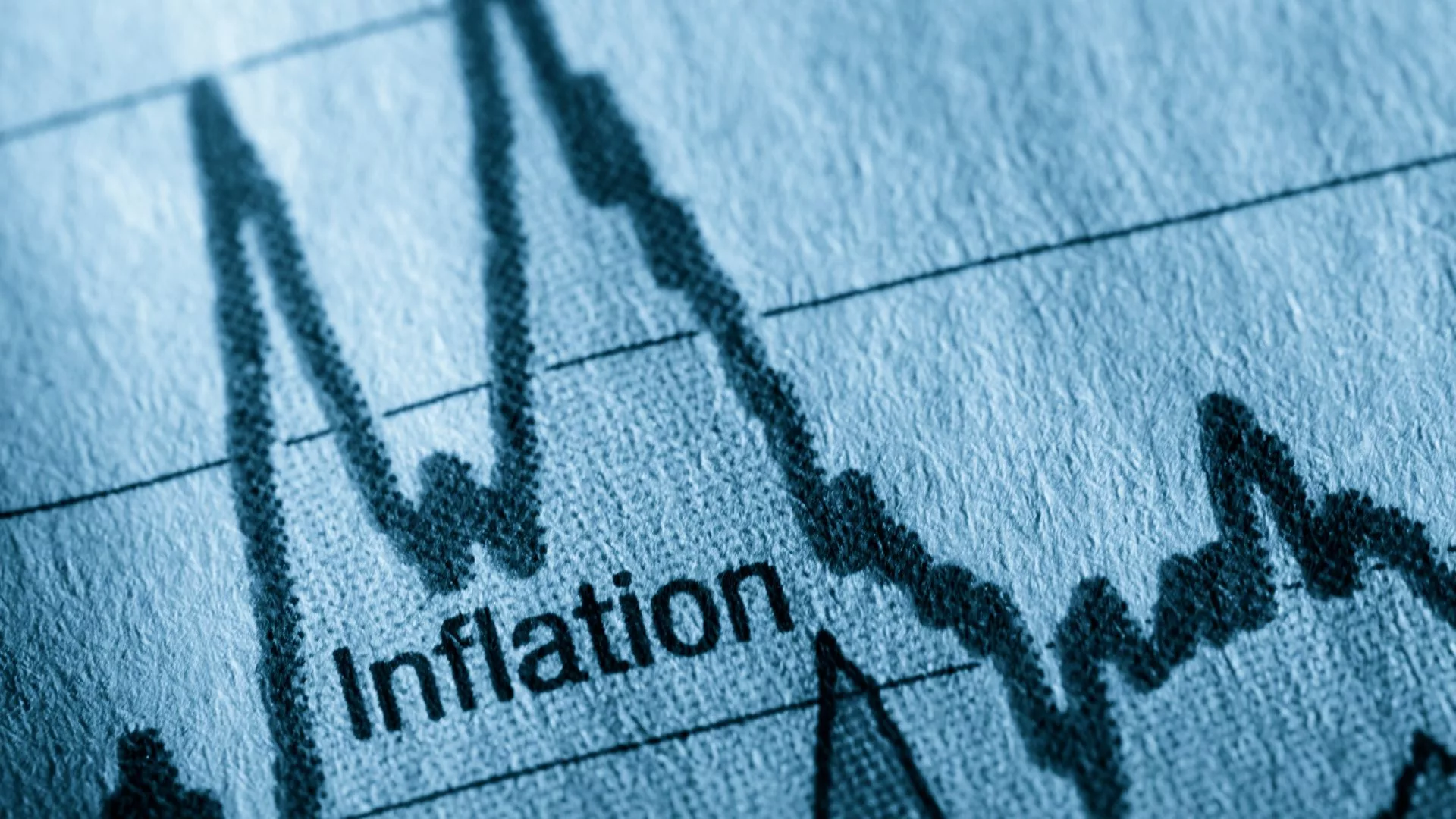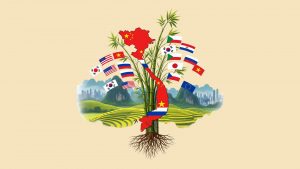Few of us have escaped the impact of inflation over the last three years, especially in the UK. But how deeply do we think about where it came from? The most common explanation says that a series of exogenous shocks from black-swan events – Covid and Ukraine foremost among them – shook the economy. We were reassured by central bankers, journalists and politicians that it was transitory, just a few supply chain issues that would work themselves out. Nothing they could do about it, and all that. But from 2021 onwards, it became clear that lasting inflation had returned, and it re-entered the popular imagination after decades where most of us had given little thought to the phenomenon, and the economic wizardry used to fight it. Now hard times are back, and here to stay.
In better years, most people’s eyes glaze over when they hear about quantitative easing and marginal increases in interest rates, and they are happy to let the bankers do whatever it is they do, unless it affects the mortgage. But it is impossible to ignore whopping increases in your food and energy bills. Last winter was the first time in decades that ordinary Britons had to think twice about putting the heat on, or had to seriously consider their options for buying food. Transitory inflation mutated into the cost of living crisis, and shows no sign of going away.
How fortunate, then, that Stephen King (no, not that one) is on hand to explain. His timely new book We Need To Talk About Inflation: 14 Urgent Lessons from the Last 2,000 Years is a rigorous look at what ails the economy. King established something of an Eeyore-ish reputation in the 2010s with books like Losing Control (2010), When the Money Runs Out (2013), and Grave New World (2017); his reviewers often asked if it really could be that bad. Everything that’s happened since 2020 would suggest that it could. King is a man worth listening to: few pundits have been more consistently on the ball. Think of him as the anti-Thomas Friedman, a bracing antidote to economic Panglossianism.
King’s reputation for prescience makes this book particularly compelling, as does his sense of history. What sets it apart from the usual doom-mongering is the breadth and depth of his comparisons. Most analysts writing about the perils of inflation might reach back to the 1970s for a handful of lessons, or perhaps gesture at Weimar Germany, but not King. While he covers those mainstays well, he is equally at home drawing lessons from Rome and early modern Europe. Those of us who believe that quantitative easing can only backfire will not be reassured by the example of the Roman denarius, reduced from 90% silver content to 5% over the course of the third century AD, with dire consequences for the middle class and the fate of the empire; nor by the ham-fisted fiscal interventions of England’s Henry VIII, who hoarded debased coinage before feeding it into the economy to cover his debts.
Members of the ASI might want more on Asian history, which holds equally valuable lessons for today – such as the collapse of the Ming economy after hyperinflation resulting from the injection of huge amounts of Spanish silver in the seventeenth century – or on how economics is often downstream of environmental events as well as the machinations of bankers and policymakers. We Need To Talk About Inflation is a veritable canter through economics, history and policy, and the amateur reader can sometimes find his head swimming. But King is an excellent guide on this whistle-stop tour, and comes into his own when criticising today’s central bankers.
A few key lessons stand out, as promised in the title. The first is the importance of money itself. King excoriates central bankers who, pointing at exogenous events, claim that they are powerless to act in the face of vast impersonal forces, and gives a concise, convincing clarion call for sound fiscal policy and moderation when firing up the printing presses. Inflation is most often the result of a collective loss of faith in the spending power of currency, and if it goes unchecked for too long people will come up with novel alternatives. King opens his book with the remarkable example of Turkey in the 1990s, when the currency became so unstable that people began to put their wealth into white goods like washing machines, which would at least hold their value.
He trenchantly notes the perennial temptation for governments – particularly liberal democracies – to let inflation loose because it serves their ends. Debasing the currency is a neat way of wiping out your debts, after all (unless you’re in the UK; it is bitterly funny to find out that most British debt is indexed to inflation). But, as King neatly explains, central bankers should perhaps take a lesson from Tony Montana in Scarface: don’t get high on your own supply. Printing your way out of a crisis is no solution at all. What serves governments and central banks well is bad news for the people they are supposed to represent: inflation is a brutally arbitrary force on wider society, creating winners and losers almost at random.
Inflation, King reminds us, is especially unfair to the poor and the ordinary: those who keep their money in cash rather than in complex financial instruments, and those who rely on their salaries instead of assets, but are unable to negotiate inflation-busting pay rises (which, while giving some temporary respite, often end up making things worse for everyone else as a general pile-on begins). As Adam Smith would have pointed out, it is also a moral hazard, rewarding chronic debtors and those who plough borrowed money into risky investments while punishing savers and scrimpers, who must watch their hard-earned cash melt away. If it goes on long enough, the economy becomes little more than a giant casino. Naturally, gamblers thrive. Most damaging of all is the kind of persistent, single or low double-digit inflation we see in Britain today: enough to immiserate a lot of us, but not enough to hurt the real movers and shakers. Weimar-style hyperinflation is, ironically, solved more easily because it moves with sufficient speed and ferocity to hit the elite. Inflation breeds mistrust, and damages social harmony – and the social fabric is weak enough as it is. Worst of all, the longer it goes on, the more painful it is to fix.
Throughout the book, King returns to a few of his classic themes, and links them to inflation – in particular, to the end of globalisation that he foresaw back in 2016. This decades-long megatrend, far out of the control of any central bank or national government, has only gathered steam since then, and will result in persistent, relatively high inflation as the global economy readjusts and recovers from a thirty-year sugar-rush of cheap labour and easy money that can never be replicated. Ominously, few countries are more exposed to the harsh winds of a post-globalisation world than Britain. The US, battered by inflation in 2020-22, has seemingly gotten it under control, despite the injection of staggering sums of cash by the Trump and Biden administrations tempting financial fate. This is, in large part, due to investment in infrastructure, and to having the world’s reserve currency – uniquely, the US can export its inflation. Even if, as journalists have begun gleefully pointing out, the US economy appears to be on the up, people on the ground are not always seeing the benefits: 60% of Americans say they feel more worse off financially now than they did four years ago. But the US has less to fear from deglobalisation than others. In a more suspicious world, it has the ability to pull up the drawbridge. With rich supplies of farmland, plentiful natural resources, a substantial manufacturing base, and some of the world’s keenest consumers, America can just about provide for itself in the new disorder, even if doing so will involve price increases the average consumer will hardly relish.
The same is not true for Britain, a global outlier in more ways than one. With precious little manufacturing capacity, and shoddy infrastructure, the UK continues to bang the drum for frictionless free trade even as the rest of the world begins to put up tariff walls and embrace protectionism. No sensible country would put its supply of natural gas and nitrogen fertiliser entirely at the tender mercies of the global market. Britain has. As much as it sounds like heresy in the tercentenary of Adam Smith’s birth, you can’t trust the invisible hand to provide everything.
Britain is in for a nasty shock. Those who want to understand how we got here, and where we might be going, should start with King’s excellent primer. It will not be comfortable reading, but it could not be more necessary.
Purchase:

Stephen D. King, We Need To Talk About Inflation: 14 Urgent Lessons from the Last 2000 Years (Yale University Press, 2023).
- Sean Paterson
- Sean Paterson
- Sean Paterson
- Sean Paterson
- Sean Paterson
- Sean Paterson
- Sean Paterson
- Sean Paterson
- Sean Paterson
- Sean Paterson
- Sean Paterson







